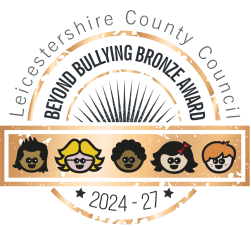Revision Hub
Revision: Where do you start?
 Eat, sleep and exercise:
Eat, sleep and exercise:
Everyone learns best when they adopt a healthy lifestyle. This means getting enough sleep (8 to 10 hours a night for teenagers!), eating regularly (make sure you eat breakfast every morning as it’ll set you up for the whole day), get some fresh air (it’ll clear your head) and do some exercise (it lowers stress levels and increases feelings of happiness).
The right environment is key:
Get rid of all distractions: your phone, tablet, music, tv, and turn them off, not just down, then put them in another room. Your phone will distract you, it is way too easy to reply to a message, get caught in a conversation and lose an hour of your time. Check in on your break, but keep it out of the way. You need a space that is quiet and free from distractions. Being comfortable is important – but not too comfortable! Your space very much depends on what works for you.
Get everything you need ready BEFORE you start:
Make sure you have all of the equipment, revision guides, cue cards, paper etc that you will need ready. Consider getting yourself a drink and a snack so that you aren’t tempted to wander off to the kitchen after five minutes.
Make a plan and stick to it!
You need to prioritise what you need to revise and when. Planning is the best way of ensuring you are revising everything you need to.
How to prioritise
Priority 1: Set realistic goals:
Monday-Friday: 1 hour per day, Saturday/Sunday: 1-2 hours per day, increasing to 2/3 hours per day as we get closer to the exam. (You will get less homework and be expected to complete more revision.)
Priority 2: Work Smart:
Attending a revision class, either at lunch or afterschool is revision. If you have spent an hour at school revising French, perhaps you can prioritise some time to yourself when you get home. Make the most of lunchtimes – half an hour quiet study means that there is half an hour less to do at home. Listening to GCSE Pod on the bus, to school and back, almost doubles the amount of revision you are able to complete in one day.
Priority 3: Plan one week ahead and stick to it:
Plan your revision for the week – tick off each session as you go along. At the end of the week, review what you have done and then make a new plan for the following week.
Priority 4: Structure your revision:
Your maximum concentration span is your age plus 20 minutes – the maximum time you can concentrate on any one thing is 35 minutes before your brain needs a break.
Consider using a tri-part revision system, e.g:
|
20 -30 minutes |
5 min break |
20 – 30 minutes |
5 min break |
20-30 minutes |
|
A Christmas Carol: 10 questions from CGP guide then mark |
Tea and biscuits |
History: Make key points on flashcards |
5 Minutes on social media |
Poetry: Practice exam question |
|
If you decide to do a second session, take a twenty/thirty minute break and then start the system again: |
||||
|
20-30 minutes |
5 min break | 20-30 minutes | 5 min break | 20-30 minutes |
| Drama: Blood Brothers - 8 mark question practice | Walk/chat, time with pet | Geography - mind map | Snack | Design & Technology - questions from revision guide |
Click here to download a blank tri-part revision sheet
Revision techniques
- Creating flashcards – One piece of information to each card – use colours, Mnemonics, pictures that help you to remember. Speak the information aloud. Write a question on one side and the answer on the other.
- Mind Maps – A quick and easy way to recall key information.
- Revision Guides – Revise a section, test yourself with the questions then mark your answers. Revision guides are available to purchase via the school Library/Parentpay for a wide variety of subjects.
- Past Paper Practise Questions - Short Answer Questions – Answer in full. Essay style questions – either answer in full or practise making your plan of attack – use bullet points.
- GCSE POD (etc) study session – As you listen, actively make notes on the subject. Use bullet points and pictures to commit it to memory. At the end of the section, present it to an imaginary audience – this time you are the teacher!
- Online Methods – Open ONE BROWSER ONLY. No music or distractions. See subject links on the right.
- Retrieval Practice - Click here for an explanation of retrieval Practice
Exam stress & anxiety The top 10 revision strategies How to revise for History How to revise
There are many general revision sites available which cover a wide variety of subjects. Click on the sites below to find one that works for you.

- Eat & sleep well
- Check key terms, quotes or definitions
- Use your own revision notes
- Set your alarm clock
- Have breakfast
- Keep hydrated
- Believe in yourself!

- Skip meal times
- Stay up late
- Get up late - avoid rushing
- Arrive late for the exam
- Forget breakfast
- Compare yourself with other
- Convince yourself you will fail
Links to subject specific revision
-
Business Studies
download_for_offline
download_for_offlineBusiness Studies
- Computer Science download_for_offline
download_for_offlineComputer Science
- Creative iMedia download_for_offline
download_for_offlineCreative iMedia
- Drama download_for_offline
download_for_offlineDrama
- DT download_for_offline
- English download_for_offline
download_for_offlineEnglish
- Food Prep and Nutrition download_for_offline
download_for_offlineFood Prep and Nutrition
- French download_for_offline
- Computer Science download_for_offline


















